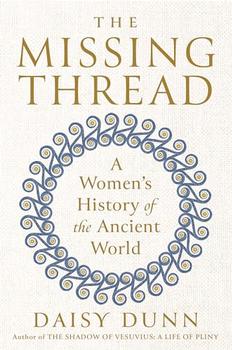Summary | Excerpt | Reviews | Readalikes | Genres & Themes | Author Bio

Militant Islam, Oil and Fundamentalism in Central Asia
by Ahmed RashidChapter One
KANDAHAR 1994: THE ORIGINS OF THE TALIBAN
The Taliban Governor of Kandahar, Mullah Mohammed Hassan Rehmani, has a disconcerting habit of pushing the table in front of him with his one good leg. By the time any conversation with him is over, the wooden table has been pushed round and round his chair a dozen times. Hassan's nervous twitch is perhaps a psychological need to feel that he still has a leg or perhaps he is just exercising, keeping his one good leg on the move at all times.
Hassan's second limb is a wooden peg-leg, in the style of Long John Silver, the pirate in Robert Louis Stevenson's Treasure Island. It's an old wooden stump. The varnish rubbed off long ago, scratches cover its length and bits of wood have been gouged out ---no doubt by the difficulties of negotiating the rocky terrain outside his office. Hassan, one of the oldest Taliban leaders at over 40 and one of the few who actually fought Soviet troops, was a founder member of the Taliban and is considered to be number two in the movement to his old friend Mullah Omar.
Hassan lost his leg in 1989 on the Kandahar front, just before Soviet troops began their withdrawal from Afghanistan. Despite the availability of new artificial limbs now being fitted to the country's millions of amputees by international aid agencies, Hassan says he prefers his peg-leg. He also lost a finger tip, the result of another wound caused by shrapnel. The Taliban leadership can boast to be the most disabled in the world today and visitors do not know how to react, whether to laugh or to cry. Mullah Omar lost his right eye in 1989 when a rocket exploded close by. The Justice Minister Nuruddin Turabi and the former Foreign Minister Mohammed Ghaus are also one-eyed. The Mayor of Kabul, Abdul Majid, has one leg and two fingers missing. Other leaders, even military commanders, have similar disabilities.
The Taliban's wounds are a constant reminder of 20 years of war, which has killed over 1.5 million people and devastated the country. The Soviet Union poured some US$5 billion a year into Afghanistan to subdue the Mujaheddin or a total of US$45 billion ---and they lost. The US committed some four to five billion dollars between 1980 and 1992 in aid to the Mujaheddin. US funds were matched by Saudi Arabia and together with support from other European and Islamic countries, the Mujaheddin received a total of over US$10 billion. Most of this aid was in the form of lethal modern weaponry given to a simple agricultural people who used it with devastating results.
The war wounds of the Taliban leaders also reflect the bloody and brutal style of war that took place in and around Kandahar in the 1980s. The Durrani Pashtuns who inhabit the south and Kandahar received far less aid through the CIA and Western aid pipeline which armed, financed and provided logistics such as medical facilities to the Mujaheddin, as compared to the Ghilzai Pashtuns in the east of the country and around Kabul. The aid was distributed by Pakistan's Interservices Intelligence (ISI), who tended to treat Kandahar as a backwater and the Durranis with suspicion. As a consequence the nearest medical facilities for a wounded Kandahari Mujaheddin was a bone-shaking two-day camel ride to Quetta across the border in Pakistan. Even today first-aid amongst the Taliban is rare, doctors are all too few and surgeons on the front line non-existent. Virtually the only medical practitioners in the country are the hospitals of the International Committee of the Red Cross (ICRC).
By chance I was in Kandahar in December 1979 and watched the first Soviet tanks roll in. Teenage Soviet soldiers had driven for two days from the Soviet Republic of Turkmenistan in Central Asia to Herat and then on to Kandahar along a metalled highway that the Soviets had themselves built in the 1960s. Many of the soldiers were of Central Asian origin. They got out of their tanks, dusted off their uniforms and ambled across to the nearest stall for a cup of sugarless green tea ---a staple part of the diet in both Afghanistan and Central Asia. The Afghans in the bazaar just stood and stared. On 27 December Soviet Spetsnatz or Special Forces had stormed the palace of President Hafizullah Amin in Kabul, killed him, occupied Kabul and appointed Babrak Karmal as President.
From Taliban. Copyright © 2000 Ahmed Rashid. All rights reserved. Used by permission of Yale Univ. Press.




Your guide toexceptional books
BookBrowse seeks out and recommends the best in contemporary fiction and nonfiction—books that not only engage and entertain but also deepen our understanding of ourselves and the world around us.